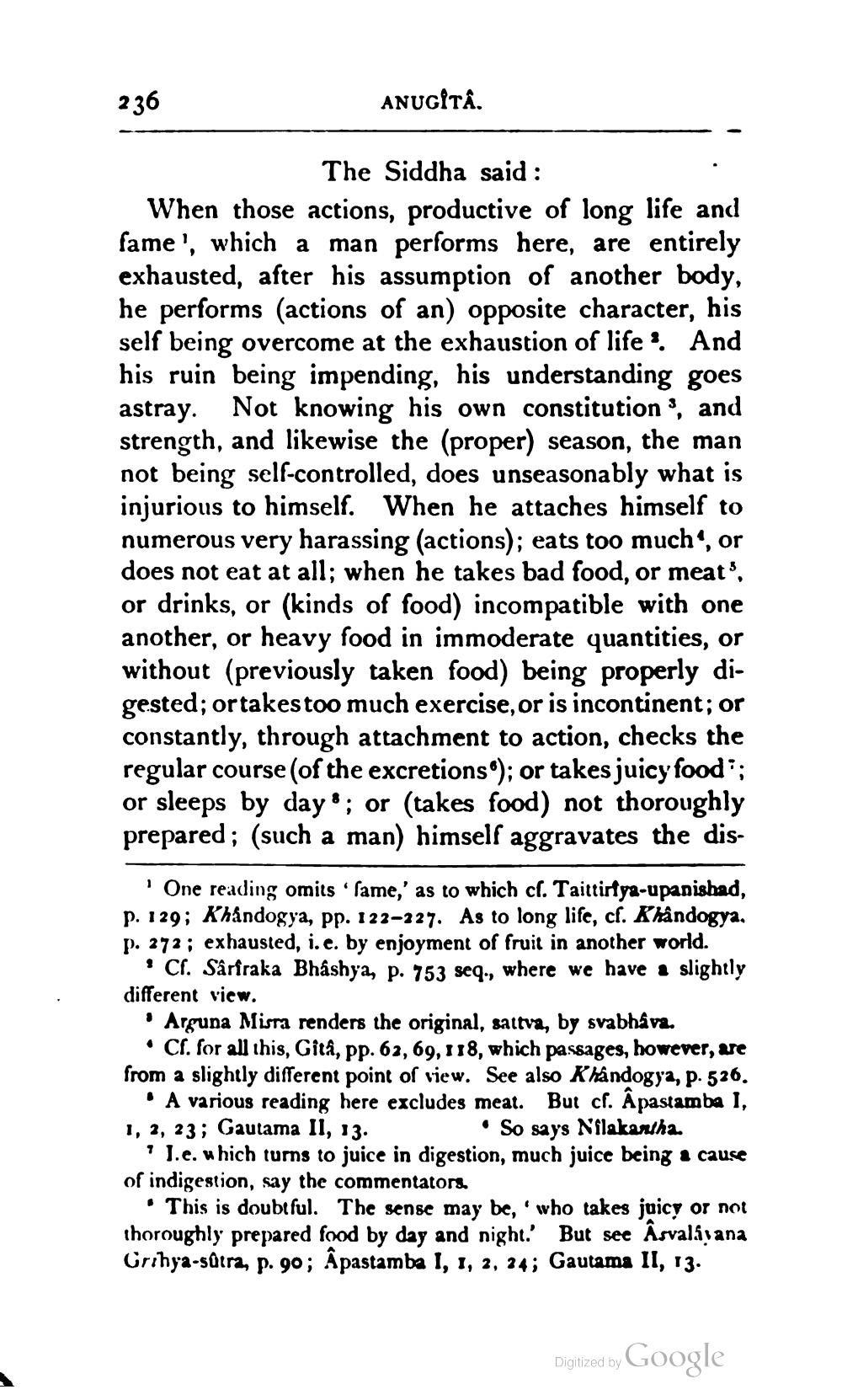________________
236
ANUGËTA.
The Siddha said : When those actions, productive of long life and fame', which a man performs here, are entirely exhausted, after his assumption of another body, he performs (actions of an) opposite character, his self being overcome at the exhaustion of life. And his ruin being impending, his understanding goes astray. Not knowing his own constitution, and strength, and likewise the (proper) season, the man not being self-controlled, does unseasonably what is injurious to himself. When he attaches himself to numerous very harassing (actions); eats too mucho, or does not eat at all; when he takes bad food, or meat', or drinks, or (kinds of food) incompatible with one another, or heavy food in immoderate quantities, or without (previously taken food) being properly digested; or takes too much exercise, or is incontinent; or constantly, through attachment to action, checks the regular course (of the excretions"); or takes juicy food; or sleeps by days; or (takes food) not thoroughly prepared; (such a man) himself aggravates the dis
One reading omits ' fame,' as to which cí. Taittirfya-upanishad, p. 129; K'håndogya, pp. 122–327. As to long life, cf. Khåndogya. p. 272; exhausted, i.e. by enjoyment of fruit in another world.
' Cr. Sârfraka Bhashya, p. 753 seq., where we have a slightly different view.
• Arguna Misra renders the original, sattva, by svabhava.
• Cf. for all this, Gità, pp. 62, 69,118, which passages, however, are from a slightly different point of view. See also Khandogya, p. 526.
• A various reading here excludes meat. But cf. Âpastamba I, 1, 2, 23; Gautama II, 13.
• So says Nilakantha. 'J.e. which tums to juice in digestion, much juice being a cause of indigestion, say the commentators.
• This is doubtful. The sense may be, who takes juicy or not thoroughly prepared food by day and night. But see Asvalavana Grihya-sûrra, p. 90; Âpastamba I, 1, 2, 34; Gautama II, 13.
Digitized by Google




